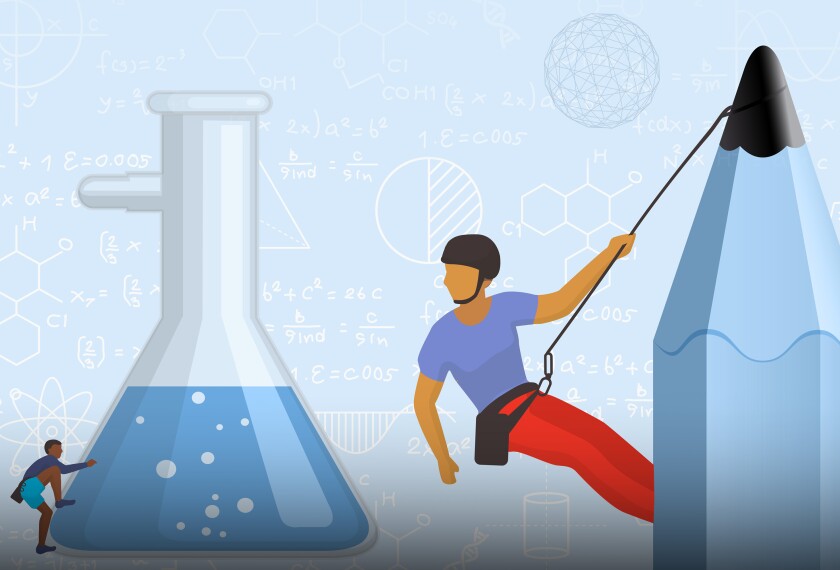Nearly all American teenagers recognize the importance of math and science, and most are confident in their own abilities in the subjects, a new survey of U.S. youths suggests.
At the same time, however, teenagers are far less confident in the nation’s ability to be competitive in mathematics and science, according to an Intel Corp.-commissioned, online survey of 1,000 U.S. teenagers. Asked which country is best at math and science, 90 percent of the youths chose a country other than the United States; 67 percent selected Japan or China. Some said Americans don’t work hard enough and lack discipline.
A clear majority of the teenagers, 68 percent, agreed that math and science know-how will be required of most jobs in the future, and 58 percent said they aspire to a math- or science-related career.
On the global question, “How important do you think it is to be good at math and science?”, 99 percent said it was either “very important” (68 percent) or “somewhat important” (31 percent). Fifty-nine percent agreed that math and science are “important for me to get into college,” but only 44 percent viewed it as important to “solving society’s big problems.”
The “geek” stigma also lingers: Only 4 percent of respondents agreed that math and science is “an area cool people tend to be good at.” The gender gap remains, as well: A greater percentage of males (89 percent) said they were confident in their abilities in science and math than did females (79 percent). Forty-nine percent of males were “very confident” compared with 36 percent of females.
“These findings raise a lot of questions,” said Shelly Esque, Intel’s vice president for legal and corporate affairs. “Are teens overconfident? Or is it that they are not being challenged enough?”




